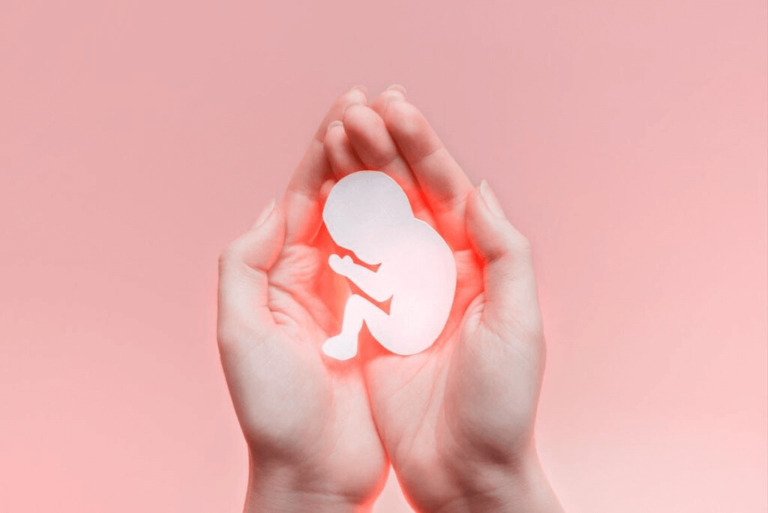The Benefits of Prenatal Massage for Expecting Moms

Prenatal massage is quickly becoming a go-to therapy for moms-to-be, helping to ease both physical discomfort and mental stress throughout pregnancy. This specialized form of massage therapy caters to the unique needs of a pregnant body and offers many advantages. From reducing muscle tension to enhancing sleep quality, here’s a breakdown of the benefits of prenatal massage for expecting moms and why it’s worth considering as part of your pregnancy routine.
1. Reduces Swelling and Improves Circulation
Swelling, or edema, is a common complaint during pregnancy, especially in the feet, ankles, and legs. It occurs as increased blood flow and pressure on major blood vessels cause fluid retention. Gentle prenatal massage can improve circulation and encourage lymphatic drainage, helping to reduce swelling. This can be especially beneficial in the third trimester, when swelling often peaks.
2. Eases Muscle Tension and Joint Pain
As your body adjusts to support a growing baby, additional strain is placed on muscles and joints. Lower back pain, hip discomfort, and leg cramps are all common during pregnancy, particularly in the later months. A prenatal massage focuses on areas of tension, helping to reduce muscular discomfort and alleviate joint strain, making day-to-day activities more comfortable.
Many expecting mothers find relief in addressing back pain and other physical discomforts with a variety of strategies. For additional insights on managing pregnancy discomfort, check out these first trimester survival tips that can be helpful throughout all stages of pregnancy.
3. Promotes Relaxation and Lowers Stress Levels
Pregnancy can bring a rollercoaster of emotions, and managing stress is essential for both mother and baby. Prenatal massage can trigger the release of serotonin and dopamine—hormones that promote relaxation and mood stability. Regular sessions can help you stay calm and focused, and many mothers report feeling more mentally at ease after a massage.
In addition, prenatal massage helps to lower cortisol, the hormone associated with stress, which can contribute to a more positive pregnancy experience overall. This emotional balance can be particularly helpful when navigating physical symptoms like food aversions and changes in appetite, which are common stressors during pregnancy. Learn more about why food aversions and appetite changes happen to feel more in control of these shifts.
4. Improves Sleep Quality
Poor sleep is a common struggle during pregnancy, especially in the later trimesters when it can be challenging to find a comfortable position. Prenatal massage can relax tense muscles, making it easier to settle into a restful sleep position. Regular massage therapy also helps to quiet the nervous system, allowing for deeper, more restorative sleep that’s essential for maintaining energy levels and supporting fetal development.
5. Boosts Immune Function
Stress and fatigue can weaken the immune system, and maintaining a healthy immune response is crucial for both mother and baby. Prenatal massage stimulates the lymphatic system, which plays an important role in immune function. Enhanced circulation also means more efficient delivery of oxygen and nutrients, helping to support both your immune health and the growth of your baby.
6. Reduces Headaches and Migraines
Hormonal fluctuations during pregnancy can lead to headaches or even migraines, especially in the first and third trimesters. Prenatal massage works to release tension in the neck, shoulders, and upper back, areas that are common culprits for tension headaches. With gentle, targeted pressure, many expecting moms experience reduced headache frequency and intensity, making it a natural alternative to pain management.
7. Supports Posture and Balance
As your body changes to accommodate a growing belly, it can affect your posture and balance, leading to strain on certain muscle groups. Prenatal massage not only eases muscular tension but can also improve alignment and posture, which is especially beneficial as the body’s center of gravity shifts. Many massage therapists focus on the lower back, hips, and glutes to maintain balance and support healthy alignment, helping to ease walking and daily activities.
8. Encourages Deeper Breathing
A common experience during pregnancy is shortness of breath due to the expanding uterus placing pressure on the diaphragm. Massage can help release tension in the chest and upper body, allowing for more efficient and comfortable breathing. Focusing on deep breathing during a prenatal massage session can reinforce relaxation, helping you feel more grounded and in control.
9. Prepares the Body for Labor
Massage can improve overall muscle tone and flexibility, which may be beneficial when it’s time for labor and delivery. Regular massage therapy can help reduce muscle tension, improve circulation, and create a relaxed physical state, which can make labor easier and potentially more comfortable. Additionally, a positive, relaxed body state before labor can encourage smoother recovery after birth.
10. Enhances Bonding with Your Baby
Prenatal massage is also a wonderful opportunity to connect with your baby. As you relax, visualize the growing life within you, and focus on the positive aspects of your pregnancy. This time of relaxation can enhance your emotional connection to your baby, creating a deeper sense of bonding that many moms cherish throughout pregnancy.
With so many benefits, prenatal massage can be an excellent addition to your self-care routine during pregnancy. Always consult your doctor before starting any new therapy, and be sure to choose a licensed massage therapist who specializes in prenatal care. Whether you’re experiencing physical discomfort, emotional stress, or simply want to enjoy a little pampering, prenatal massage can support your well-being in countless ways throughout your pregnancy journey.






